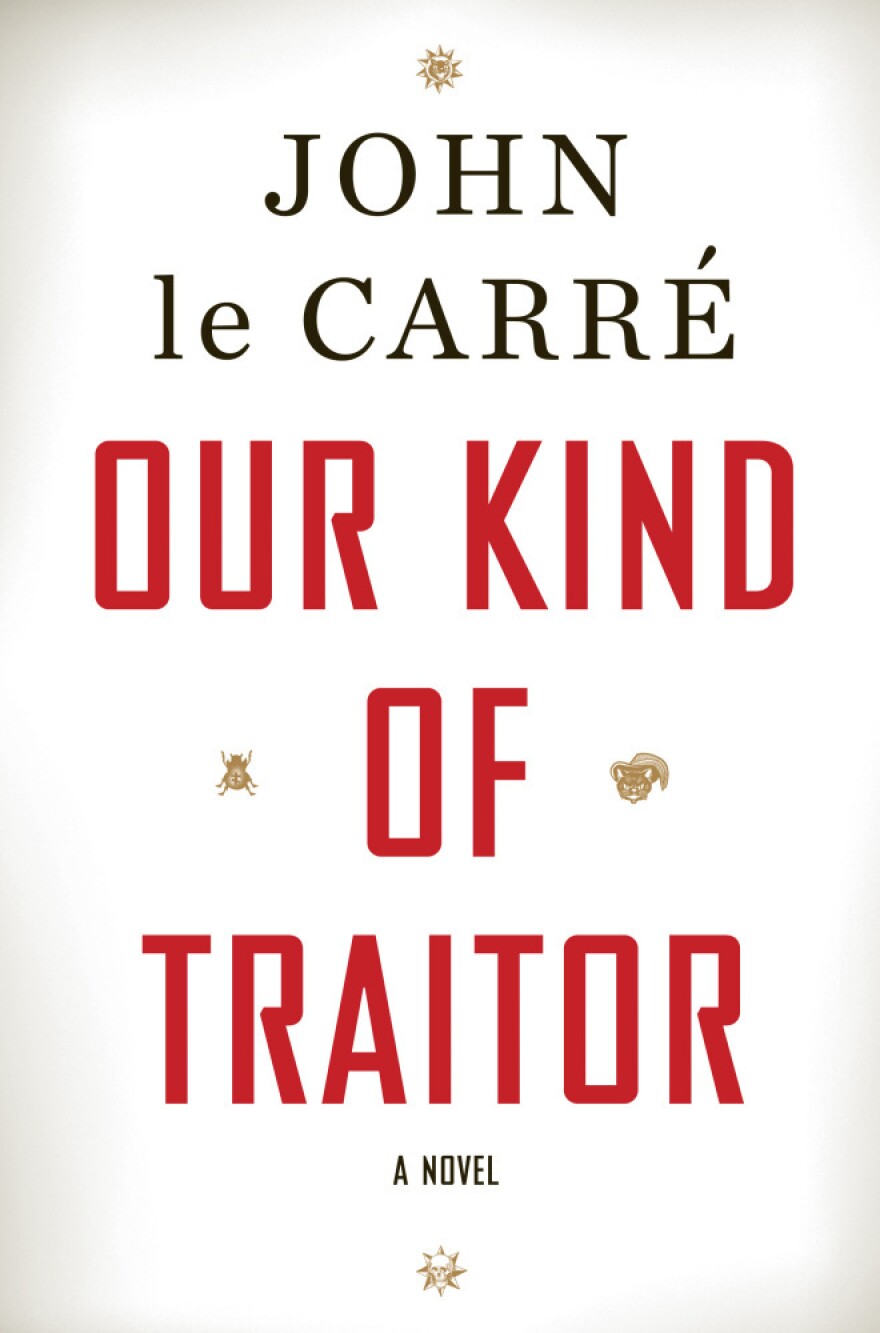Politicians and historians both know an interesting thing about people. Given the chance, most of us will take on the long odds -- we will embrace hardship and danger, will ignore our self-interest -- if we think it means a chance to act heroically. We want, it seems, to elevate honor and nobleness over day-to-day material concerns: minding the bottom line, and tolerating all that entails. So if we're promised blood, sweat, toil and tears, but get to play a part in saving civilization, certain leaders know most of us would only be too happy to take that offer.
In John le Carre's smoothly entertaining new novel, Our Kind of Traitor, a young, brainy and beautiful couple find themselves similarly seduced. On a tennis vacation in Antigua, Perry and Gail stumble into the world of Dima, a burly, charismatic money-launderer, Dima's extended family and his even larger family of Russian mafiosi. Dima, it turns out, is about to be killed by his dishonorable boss, and he needs an out. We learn of his predicament as Perry and Gail, sitting in a brick-lined wine cellar in a lovely house in Bloomsbury, tell their vacation story to another young, brainy and attractive pair. They're not friends, though. They work for the U.K.'s Intelligence Service.
What follows is a beautifully low-key yet incrementally tense story of how Perry, a scholar and a mountain climber, and Gail, a sharp, empathetic lawyer, get themselves neck-deep in a secret plot to provide sanctuary for Dima and his clan. In exchange, Dima will provide British intelligence with information indicting some top U.K. officials and financiers for participating in his operation's scheme to turn billions of "black" currency "white" through a proposed London office. Ostensibly, this is the point of le Carre's novel, to focus people's attention on the global rot spawned by multinational organized crime. When about one-fifth of the world's GDP is illicit (as Misha Glenny wrote in his indispensable book on the subject, McMafia: A Journey Through the Global Criminal Underworld), high finance and gangsterism can't help forming marriages of convenience.
The bigger theme, though, is how disgusted we have become with powerful leaders, whether civic or criminal, who are (as Hector, the veteran intelligence officer who guides the Dima mission, describes them) nothing more than bores: "mediocre, banal, insensitive, lackluster, to be distinguished from other bores only by their covert support for one another, and their insatiable greed." Dima, though a killer and an outlaw, is turning traitor because the very "brotherhood" that defines him no longer stands for anything. Perry wants to stop complaining about the world and do something about its ills. And the intelligence team guiding Perry and Gail can't abide that one of their own -- now an MP -- is party to Dima's money laundering, thereby disgracing the agency that gives them meaning.
All of the novel's protagonists are aware, if not fully reckoned with the fact, that even if they pull this off, it won't be without suffering major blows. It's that moral derring-do coursing through all of the anguishing twists, exotic locales and vivid characters of the spy mission that keeps the reader rapt. Le Carre's nuanced understanding of what makes people tick, coupled with his knowledge of the world's dirty practices, makes Our Kind of Traitor so satisfying.
Copyright 2023 NPR. To see more, visit https://www.npr.org.




